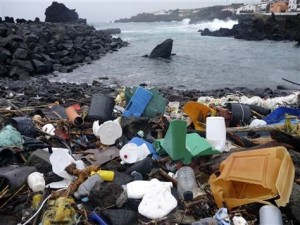It’s no secret that synthetically-developed plastics are among the worst products for the environment, yet they are consistently manufactured nationwide. Regardless of BPA-free, recycled and supposedly “eco-friendly” replacements to traditional plastic products, the industry overall still negatively impacts the environment at an alarming rate. Plastic is so fiscally attainable that it has come to replace many other mediums. Petroleum-based plastics often omit toxic chemicals while being used, and once they are discarded, the waste builds up in oceans and continues to spread toxic pollutants that affect marine life.
Postdoctoral bio-engineer of Harvard University Javier Fernandez created black and white chess pieces made of plastic — but not the traditional hormone-ridden plastic that we have come to know. The plastic pieces are composed of a compostable material called “Chitin.” It is primarily composed of animal and insect byproducts — such as shrimp shells and butterfly wings. Fernandez raves about the abundance and how affordable it is because it can be found in almost every living organism aside from vertebrates and plants. Many audiences find themselves initially shying away from the concept of Tupperware made with fly wings.
However, the reality of what plastic containers are made with currently are much more detrimental to people’s health, as well as the environment.

Since most of the components of the Chitin-based bioplastic comes from animals (primarily marine animals), the material is completely compostable and can be used as soil for household gardens. Fernandez and his colleagues are in the works of processing a form of Chitin, called Chitosan, that could potentially be manufactured on a larger scale. In today’s society, everything comes down to cost and if this new form of plastic is healthier all-around and produced at a cheaper rate, the $375-billion-a-year plastic industry is going to need to reevaluate their sources.
The Food and Drug Administration dictate that their approval is necessary before any chitosan-based plastic materials are used to package food products. Similarly, the Environmental Protection Agency is placing a watchful eye on the manufacturing of variations of the chitosan plastics. There are other alternatives to petroleum-based plastics in the works, such as plant-based bioplastics. Brands like NatureWorks derive sugar from crops such as corn and create clothing, water bottles and other consumer goods. Chitin offers a different solution to the plastic problem — one that uses discarded materials to create one of the most-used materials in the world.






